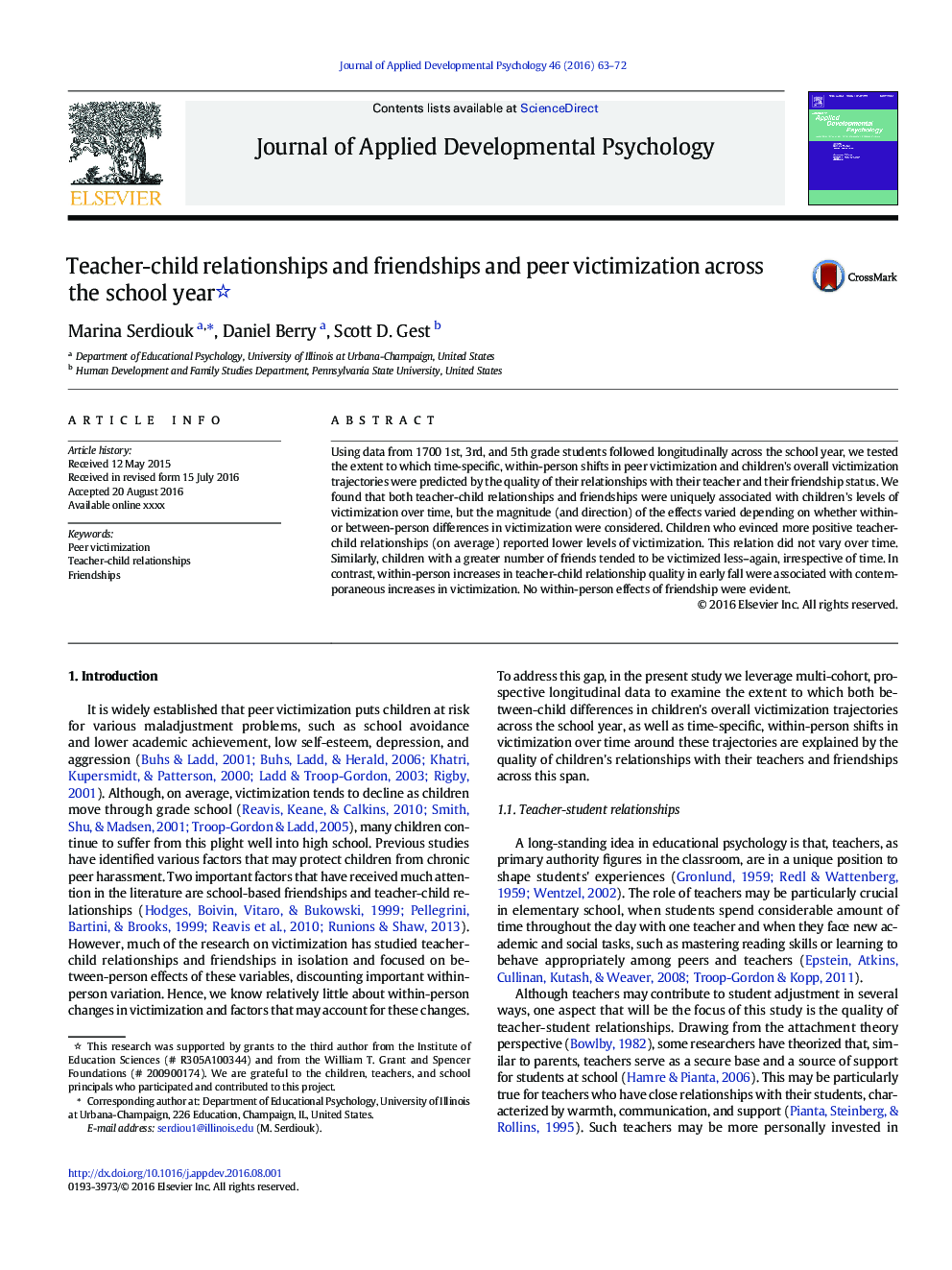| Article ID | Journal | Published Year | Pages | File Type |
|---|---|---|---|---|
| 6842832 | Journal of Applied Developmental Psychology | 2016 | 10 Pages |
Abstract
Using data from 1700 1st, 3rd, and 5th grade students followed longitudinally across the school year, we tested the extent to which time-specific, within-person shifts in peer victimization and children's overall victimization trajectories were predicted by the quality of their relationships with their teacher and their friendship status. We found that both teacher-child relationships and friendships were uniquely associated with children's levels of victimization over time, but the magnitude (and direction) of the effects varied depending on whether within- or between-person differences in victimization were considered. Children who evinced more positive teacher-child relationships (on average) reported lower levels of victimization. This relation did not vary over time. Similarly, children with a greater number of friends tended to be victimized less-again, irrespective of time. In contrast, within-person increases in teacher-child relationship quality in early fall were associated with contemporaneous increases in victimization. No within-person effects of friendship were evident.
Keywords
Related Topics
Social Sciences and Humanities
Psychology
Applied Psychology
Authors
Marina Serdiouk, Daniel Berry, Scott D. Gest,
